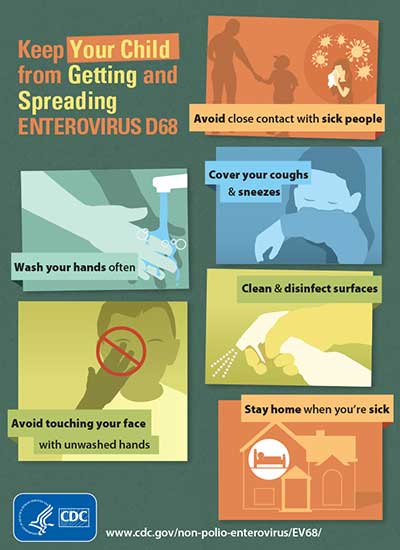NSMC News Releases
North Shore Medical Center Hospital Visitor Restrictions
To limit the spread of Enterovirus D-68, a respiratory virus that primarily affects children, adolescents and young adults, NSMC is putting temporary visitor restrictions in place.
Visitors who are ill, who have recently been ill or who are under 16 years of age are being asked not visit the Pediatric Inpatient Unit, Special Care Nursery or the NSMC Birthplace. Please do not forget to wash your hands with soap and water frequently! Thank you.
CDC report:
Runny nose, cough and congestion are fairly normal this time of year. Ragweed counts and mold spores rise, asthma and allergies act up, and virus-sharing kids return to school, get sick, and inadvertently transmit their germs to moms, dads, siblings, friends and the rest of the community. But this year is different.
Across the nation, physicians are seeing more patients with respiratory complaints, and these cases are more severe than usual, with many children wheezing and requiring admission to the hospital. Some need intensive care.

The Centers for Disease Control (CDC) have identified the culprit as Enterovirus D68 (EV-D68), noticing it first in several Midwestern states, and now in New England and elsewhere in the United States.
What is Enterovirus D68?
Until now, EV-D68 was an uncommon member of the enterovirus family of microorganisms. That family includes some familiar viruses such as Rhinovirus (common cold) and Coxsackievirus (hand foot and mouth disease). Discovered in 1962, EV-D68 has kept a relatively low profile, causing only six small outbreaks between 2005 and 2011 in the Philippines, Japan, the Netherlands, and the United States.
How is EV-D68 spread?
EV-D68 spreads through respiratory droplets and oral secretions. Enteroviruses are also know to infect the GI tract, so transmission through stool is also possible. The virus can spread easily through close contact with an infected person, and prevention strategies include staying away from sick people, covering coughs and frequent hand washing.
What are the symptoms?
The current outbreak of EV-D68 appears to be isolated to the respiratory tract. It causes runny nose, mild sore throat, cough and congestion. Children with asthma have a high risk of wheezing with this virus. In addition, there have been many cases of children wheezing who do not have a history of asthma. Wheezing is caused by inflammation in the small airways of the lungs, and swelling in these passages restricts the flow of air.
EV-D68 can also cause fever, abdominal pain, vomiting, diarrhea and rash.
How is EV-D68 treated?
The vast majority of children will only experience mild upper respiratory symptoms similar to the common cold. These symptoms last about a week, and treatment is supportive: remove mucus from the nasal passages, get plenty of rest and encourage fluids. Children who develop wheezing, difficulty breathing, unusual rashes, persistent vomiting or prolonged fever should see a doctor. If you have any concern at any time, it’s always a safe bet to touch base with your child’s primary care provider.
When should we go to the emergency room?
Children with severe respiratory symptoms (wheezing, difficulty breathing) need to be seen right away. If your child is experiencing severe distress, call 911. Otherwise, call your doctor or have your child seen in an urgent care center or emergency department with special skill in treating pediatric patients.
If your child only has cold-like symptoms, it really is best to touch base with your child’s primary care doctor first. For more information and updates, please visit the Centers for Disease Control and Prevention website.

